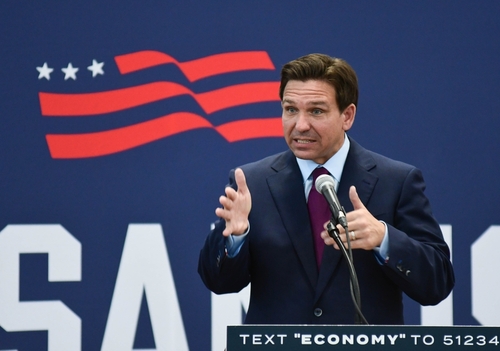Florida's Homeowners Insurance Crisis - Democrats Blaming Republicans

Recently, Florida Atlantic University pollsters asked Florida residents who was most responsible for the high cost of insurance in the state, Not surprisingly, the majority put the blame squarely on Republican Gov. Ron DeSantis. While DeSantis absolutely is to blame for the continuation of skyrocketing premiums, it was his predecessor, Rick Scott, now a U.S. senator, who put many of the policies in place that led to serious troubles in the Florida insurance market.
Scott served eight years as governor and during his term he wrangled low-quality insurance companies to the state while also leaving Citizens Property, Florida’s publicly owned insurer-of-last-resort agency to pick up the pieces as insurers went under or declined to write coverage in hurricane prone areas.
Scott is now in an extremely tight race to save his Senate seat and his Democratic challenger former Rep. Debbie Mucarsel-Powell, who is reminding voters how it was a Republican policy that have made Florida one of the most expensive states in the country for homeowners insurance.
During his term as Governor, Scott focused on moving more property owners out of Citizens Property and into the private market by raising premiums and rescinding discounts at Citizens Property. While doing this he was also giving private insurers extra incentives and protections to convince them to write coverage in Florida.
As climate change has supercharged storms and Florida is now being hit by hurricanes causing billions of dollars in damage, insurers are leaving the state altogether forcing homeowners back to Citizens Property. Unfortunately, Citizen’s policies are now much more expensive while offering less coverage.
During her term in Congress, Mucarsel-Powell helped direct $200 million for Everglades restoration to the state which can help with climate change, an issue she was passionate about. Scott on the other hand regularly rejects basic climate science and has voted to eliminate regulations to curb planet-heating pollution.
Recent hurricanes, Helen and Milton have left billions of dollars in damage with homeowners struggling to get insurers to play on claims. “It has raised the alarm to the fact that the climate is changing, and no one has done anything to bring down the impacts,” she said in a recent HuffPost article. “Politicians have been lying to so many Floridians by not giving them the right information and by selling them on fraudulent policies through some of these insurance companies they’ve brought here.”
Mucarsel-Powell claims in the recent Huffpost article that Scott’s administration failed to oversee insurers brought into the state. She claims that Scott failed homeowners by not verifying that the insurers brought into the state had enough funds to cover all the claims after a big disaster.
“It’s borderline criminal,” Mucarsel-Powell said in the Huffpost article “People are so angry, frustrated and exhausted. Helene brought flooding. Then Milton made everything worse.”
Scott has made questionable environmental decisions before. As Governor, he slashed environmental regulations and then cut funding for Florida’s water management agency by $700 million. This resulted in a toxic algae bloom that put many fisheries out of business and hit the tourism business hard in 2018 earning him the nickname “red tide Rick.”
After taking office in 2011, Scott signed legislation eliminating Citizens’ caps on premium increases, which lead to skyrocketing premiums for homeowners. Scott offered private insurers incentives to take over Citizen’s policies such as allowing them to cherry pick the least risky policies, leaving Citizens holding the riskiest polices. He then vetoed legislation that was passed unanimously in the Florida Legislature which allowed homeowners to return to Citizens if private rates went too high.
In the end, over half of the 25 insurance companies that were approved to take over Citizen’s policies under the Scott have left Florida, stopped writing coverage in risky areas or went out of business
As insurers fled the state, homeowners were forced back to Citizens but at a higher rate and with lower coverage levels. The influx of new policyholders left Citizens vulnerable in the event a major storm hit the state.
“I think most people know Citizens has not been solvent,” DeSantis said at a news conference in March last year. “If you did have a major hurricane hit with a lot of Citizens property holders, it would not have a lot to pay out.”
Eventually, the U.S. Senate Banking Committee opened an investigation into whether Citizens had enough money to pay out claims in the event of future disasters.
According to a CNN news report at the time, Citizens said that if a major storm hit and they had to pay out all of their reserves and reinsurance for claims, Florida taxpayers would be on the hook to make up the balance. “It is required by Florida law to levy surcharges and assessments on its policyholders and all Florida insurance consumers until any deficit is eliminated.”
The insurance market in Florida has continued to struggle under DeSantis and recent hurricanes could lead to another exodus of insurance companies.
Mucarsel-Powell has advocated for stronger building codes and the Biden administration has made more than $1 billion available to states who are willing to raise building codes on new homes and apartments that make them more energy efficient and able to withstand severe weather. Unfortunately, the DeSantis administration has refused to accept any of the funding.
